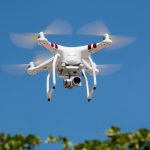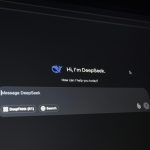AI prospect generation transforms how sales teams build pipelines by automating lead identification and outreach. This technology creates AI sales clones that handle emails, calls, and LinkedIn messages, freeing teams to focus on relationship-building. With streamlined campaign management and scalable outreach, businesses can boost productivity, increase meetings, and achieve higher returns—all while saving valuable time and resources.
Leveraging AI for Effective Sales Prospect Generation
AI-powered lead identification revolutionizes the sales process by automating high-quality lead discovery. Techniques like machine learning and natural language processing enable precise prospect targeting, reducing time spent on manual searches. Real-time, data-driven prospect profiling ensures sales teams focus on high-potential contacts, increasing conversion rates.
Also to see : Explore the future of ai character creation for professionals
Prospect AI exemplifies this shift, automating outreach and filtering prospects efficiently. It finds leads with contact info, manages follow-ups, and adapts strategies based on response patterns. Users report reclaiming hours weekly, thanks to features like continuous learning and personalized messaging, which discover the power of ai prospect generation for your business.
For more insights, you can view detailed strategies on this page: discover the power of ai prospect generation for your business. This integration of AI tools boosts scalability, improves targeting accuracy, and accelerates the sales pipeline—transforming traditional sales efforts into a streamlined, effective process.
In parallel : Unlocking engagement: harnessing storytelling in marketing campaigns for maximum impact
Core Capabilities of AI Prospect Generation Tools
AI-driven lead identification uses advanced algorithms to pinpoint prospects most likely to convert. Through automated customer targeting, systems streamline contact discovery across email, phone, and social platforms, amplifying sales pipeline growth. Predictive sales prospecting leverages machine learning for lead scoring, prioritizing high-fit opportunities and bypassing manual guesswork.
Smart lead qualification depends on behavioral data analysis, optimizing sales pipeline with AI by rapidly scoring and routing leads. Platforms employ data-driven prospect profiling, enabling customer segmentation automation and pinpointing ideal profiles for every campaign. The integration of sales automation tools with advanced CRM integrations ensures seamless data flow and instant enrichment—enabling real-time prospect insights and boosting response rates.
AI-powered sales funnels enable multi-layered, automated outreach strategies, combining AI sales assistants and chatbots for lead capture. Natural language processing for prospecting personalizes every interaction, while lead enrichment techniques draw on external datasets to complete contact details or flag intent signals. Automated email campaigns, paired with AI in B2B lead generation, keep engagement high—even during off-hours.
By automating each touchpoint, these platforms support AI lead nurturing, facilitating better targeting of high-value clients. With the right lead generation analytics, teams can refine their approach, using intent data utilization and AI lead scoring models for continuous improvement in prospect engagement optimization.
Practical Implementation Strategies and Use Cases
Automated outreach strategies start with ai-driven lead identification, where machine learning for lead scoring pinpoints prospects with the highest probability of conversion. By leveraging predictive sales prospecting, outreach campaigns can scale rapidly—automated customer targeting ensures each message is tailored based on data-driven prospect profiling. This approach enables precise segmentation, resulting in improved prospect engagement optimization and higher lead conversion rate improvement.
Companies adopting AI sales assistant tools are streamlining process automation in prospecting, freeing human teams to focus on relationship-building. Practical use cases reveal that AI-powered sales funnels with customer segmentation automation allow organizations to target high-value clients efficiently. Natural language processing for prospecting, combined with chatbots for lead capture, fosters real-time prospect insights and initiates conversational AI in sales. As a result, sales teams benefit from optimized lead generation analytics, identifying the right opportunities faster and nurturing leads more effectively.
Best practices for infrastructure setup include integrating advanced CRM integrations and AI-powered personalized messaging. Setting up tools for domain management and email list segmentation further enhances deliverability and performance. Continuous lead enrichment techniques ensure that databases stay fresh, powering AI lead nurturing and driving sales performance metrics upward—all with transparent monitoring and advanced sales automation tools.
Assessing ROI and Overcoming Challenges
Quantifying the ROI of AI-driven lead identification and automated customer targeting is grounded in the ability to reclaim hours from manual prospecting and accelerate pipeline growth. Teams leveraging machine learning for lead scoring and predictive sales prospecting often report reclaiming multiple hours weekly, as repetitive outreach shifts to AI-powered sales funnels and process automation in prospecting.
Time savings become especially visible through automated outreach strategies and real-time prospect insights. The result is often a tripling of pipeline growth—AI in B2B lead generation not only increases the volume of quality leads but also sharpens prospect engagement optimization and boosts conversion rate improvement. Sales automation tools can streamline campaign management, minimizing human time spent on repetitive tasks.
Challenges emerge, however, around data quality and ethics. Ensuring smart lead qualification and reliable automated email campaigns requires robust data-driven prospect profiling and data cleansing for leads. High-quality data enhances the accuracy of AI lead scoring models, while poor inputs can undermine intent data utilization and AI-driven market research.
Data privacy and compliance are constant concerns. GDPR compliance in AI prospecting is now fundamental, calling for strict controls over behavioral data analysis and AI ethics in sales automation. Careful attention to ethical AI adoption strategies and transparency in AI-powered personalized messaging supports both compliance and trust.
Technical complexity also arises with advanced CRM integrations and multi-channel lead generation. Overcoming these issues requires collaboration between IT and sales, as well as regular training on sales team use of intelligent contact discovery, conversational AI in sales, and customer segmentation automation to maximize both ROI and data accuracy.






